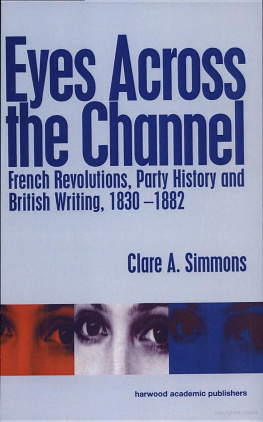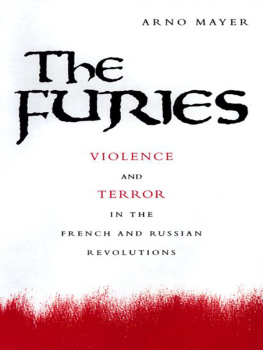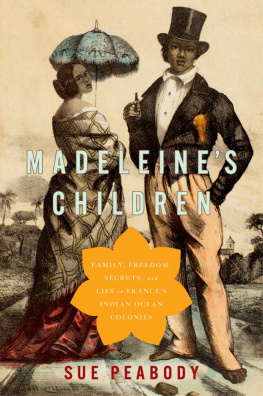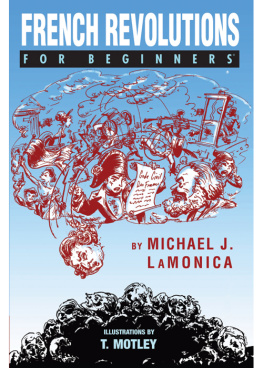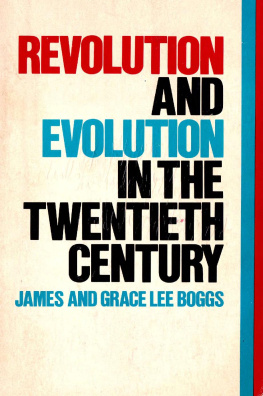Gildea - Children of the Revolution
Here you can read online Gildea - Children of the Revolution full text of the book (entire story) in english for free. Download pdf and epub, get meaning, cover and reviews about this ebook. year: 2008;2005, publisher: Penguin Books Ltd, genre: Politics. Description of the work, (preface) as well as reviews are available. Best literature library LitArk.com created for fans of good reading and offers a wide selection of genres:
Romance novel
Science fiction
Adventure
Detective
Science
History
Home and family
Prose
Art
Politics
Computer
Non-fiction
Religion
Business
Children
Humor
Choose a favorite category and find really read worthwhile books. Enjoy immersion in the world of imagination, feel the emotions of the characters or learn something new for yourself, make an fascinating discovery.

Children of the Revolution: summary, description and annotation
We offer to read an annotation, description, summary or preface (depends on what the author of the book "Children of the Revolution" wrote himself). If you haven't found the necessary information about the book — write in the comments, we will try to find it.
Nineteenth-century France was one of the worlds great cultural beacons, renowned for its dazzling literature, philosophy, art, poetry and technology. Yet this was also a tumultuous century of political anarchy and bloodshed, where each generation of the French Revolutions children would experience their own wars, revolutions and terrors.
From soldiers to priests, from peasants to Communards, from feminists to literary figures such as Victor Hugo and Honor de Balzac, Robert Gildeas brilliant new history explores every aspect of these rapidly changing times, and the people who lived through them.
Gildea: author's other books
Who wrote Children of the Revolution? Find out the surname, the name of the author of the book and a list of all author's works by series.
Children of the Revolution — read online for free the complete book (whole text) full work
Below is the text of the book, divided by pages. System saving the place of the last page read, allows you to conveniently read the book "Children of the Revolution" online for free, without having to search again every time where you left off. Put a bookmark, and you can go to the page where you finished reading at any time.
Font size:
Interval:
Bookmark:
THE NEW PENGUIN HISTORY OF FRANCE
THE GREAT NATION:
France from Louis XV to Napoleon Colin Jones
CHILDREN OF THE REVOLUTION:
The French, 17991914 Robert Gildea
LA VIE EN BLEU:
France and the French since 1900 Rod Kedward

ALLEN LANE
an imprint of
PENGUIN BOOKS
ALLEN LANE
Published by the Penguin Group
Penguin Books Ltd, 80 Strand, London WC2R 0RL , England
Penguin Group (USA) Inc., 375 Hudson Street, New York, New York 10014, USA
Penguin Group (Canada), 90 Eglinton Avenue East, Suite 700, Toronto, Ontario, Canada M4P 2Y3
(a division of Pearson Penguin Canada Inc.)
Penguin Ireland, 25 St Stephens Green, Dublin 2, Ireland (a division of Penguin Books Ltd)
Penguin Group (Australia), 250 Camberwell Road,
Camberwell, Victoria 3124, Australia (a division of Pearson Australia Group Pty Ltd)
Penguin Books India Pvt Ltd, 11 Community Centre,
Panchsheel Park, New Delhi 110 017, India
Penguin Group (NZ), 67 Apollo Drive, Rosedale, North Shore 0632, New Zealand
(a division of Pearson New Zealand Ltd)
Penguin Books (South Africa) (Pty) Ltd, 24 Sturdee Avenue,
Rosebank, Johannesburg 2196, South Africa
Penguin Books Ltd, Registered Offices: 80 Strand, London WC2R 0RL , England
First published 2008
1
Copyright Robert Gildea, 2008
The moral right of the author has been asserted
All rights reserved Without limiting the rights under copyright reserved above, no part of this publication may be reproduced, stored in or introduced into a retrieval system, or transmitted, in any form or by any means (electronic, mechanical, photocopying, recording or otherwise), without the prior written permission of both the copyright owner and the above publisher of this book
978-0-14-191852-5
to Rachel, Georgia, William and Adam
Photographic acknowledgements are given in parentheses.
First and foremost I would like to thank Ruth Harris, my fellow traveller in nineteenth-century French history, for her close reading of much of this book and her insightful advice. Belinda Jack encouraged me to write a history that would be of use to modern linguists as well as to historians. Julian Wright kindly invited Colin Jones, author of The Great Nation , and myself to discuss our approaches at an event on The New Cobbans that he organized at the University of Durham in 2006. I would like to acknowledge the debt I owe to Theodore Zeldin, who supervised my thesis over thirty years ago, and whose revolutionary approach to French history stimulated some of my thinking about this book. My thanks go to Simon Winder, my editor at Penguin, for his guidance which was both firm and good-humoured, and to my agent Catherine Clarke for her sharp judgement and unfailing enthusiasm. Cecilia Mackay presented me with a vast range of rich images, only a sample of which are used as illustrations here. I am grateful to the editorial team at Penguin, notably to Peter James for his skilful copy-editing and to the editorial manager, Richard Duguid. I would like to thank Lucy-Jean for her support and affection, as ever. This book is dedicated to my children in the hope that they will learn a little more about the country they love.
of the Revolution
On every generation to which it gave birth the French Revolution left its mark. A mark of hope for a new dawn, a new order of the world, but also a mark of tragedy, of a project that came to grief in anarchy, bloodletting and despotism. It proclaimed the power of mans reason to achieve progress and happiness in the world, the rights of man to liberty and equality which every government should protect, the sovereignty of the people, the virtues of self-government, and the duty of French citizens to spread liberty among oppressed peoples abroad. And yet the Revolution spawned new tyrannies, the tyranny of the masses who insulted and abused their elected representatives, a revolutionary dictatorship that terrorized its enemies and the plebiscitary dictatorship of Napoleon Bonaparte who appealed to the disgruntled masses over the heads of the politicians. Liberty was sacrificed to equality, and difference was eliminated in the name of the public interest. The fanaticism attributed to religion was replaced by a revolutionary fanaticism that persecuted its enemies and then consumed its own in a fratricidal struggle. Revolutionaries spawned new armies that set fire to Europe for a generation in the first manifestation of total war.
The Revolution divided the French into two irreconcilable camps. Each had its own defined sense of what France should be, claimed total legitimacy for itself and demonized its opponents. One camp dreamed of bringing back the Ancien Rgime, monarchy by divine right, a social hierarchy dominated by a noble caste, and the supremacy of the Catholic Church which sanctified the monarchy and was protected by it. It abhorred the Revolution, forgetting that for three years monarchy, Church and Revolution had coexisted, denouncing the violence it had unleashed from the taking of the Bastille on 14 July 1789, when the head of its governor was paraded on a pikestaff by the mob. Attempts to reform the Catholic Church quickly gave way to its destruction, the closure of churches, the massacre of priests and nuns, the silencing of bells. The monarchy was overthrown by a republic, and the Republic executed the king. A reign of Terror was orchestrated against the enemies of the Revolution, using the guillotine, grapeshot and drownings, and putting rebel provinces to fire and sword. For the counter-revolutionaries no compromise was possible with the Revolution: it would be terminated and those who had promoted it, beginning with the regicides who had voted for the kings death, would themselves be put to death. Neither could there be any deal with the regime of Napoleon to which the Revolution gave rise: he was regarded as a despot, a usurper and a warmonger.
The other camp, with the same passion, believed that the Revolution had been necessary to overthrow an Ancien Rgime that had refused to reform itself and had violated the right of every man to liberty and self-government. The forces of the Ancien Rgime had not given way but had brought in foreign armies and fomented civil war in the provinces. The Revolution had had to defend itself against its enemies, deposing a tyrant, crushing nobles and clergy who stirred up counter-revolution. The Republic was considered the perfect political order, enshrining liberty, equality and fraternity. It educated its citizens in patriotism or civic virtue the sacrifice of their selfish interests to the common good by a combination of republican schooling, participation in public festivals celebrating the Republic, and military service. Enrolled in revolutionary armies, citizens drove out the armies of kings and aristocrats who tried to destroy them and brought liberty and fraternity to peoples who were still oppressed. If the Republic came to an end in 1804 and the Revolution seemed to be over in 181415 with the restoration of the monarchy, this was because the education of citizens had not been thorough enough or because opposition had not been suppressed decisively enough. The Revolution and the Republic were unfinished business for revolutionaries, who returned to them repeatedly in the nineteenth century, in 1815, 1830, 1848 and 1871, in order to achieve them completely, permanently, better than before.
Each generation through the nineteenth century wrestled with these problems in their own way. Generations were not so much biological, born at the same time, as historical, shaped by the same events. These events might be the revolutions of 1789, 1830, 1848 and 1871. They might be the Hundred Days of 1815, when Napoleon returned briefly from exile to power until his overthrow at Waterloo, or defeat in the Franco-Prussian war of 1870, or the challenge to French power of British aggression in 1898 or German aggression in 1905 or 1911. These events gave shape to successive generations which differed because of the different events they experienced in their formative years, or later in life. The birth dates of a generation would gravitate around a key year, although individuals defined by the same event might actually be born ten years before or after, so long as they reacted in the same way, most as peers, others as masters or disciples. Not all members of the same generation responded to the same events in the same way. Some, for example, would be swept up in the revolutionary fervour, while others would be turned against it by persecution, the loss of loved ones or enforced exile. The great challenge of the nineteenth century was whether rival or even enemy units of the same generation could find common ground on which to build a political consensus and lay to rest the painful conflicts inherited from the Revolution.
Font size:
Interval:
Bookmark:
Similar books «Children of the Revolution»
Look at similar books to Children of the Revolution. We have selected literature similar in name and meaning in the hope of providing readers with more options to find new, interesting, not yet read works.
Discussion, reviews of the book Children of the Revolution and just readers' own opinions. Leave your comments, write what you think about the work, its meaning or the main characters. Specify what exactly you liked and what you didn't like, and why you think so.



